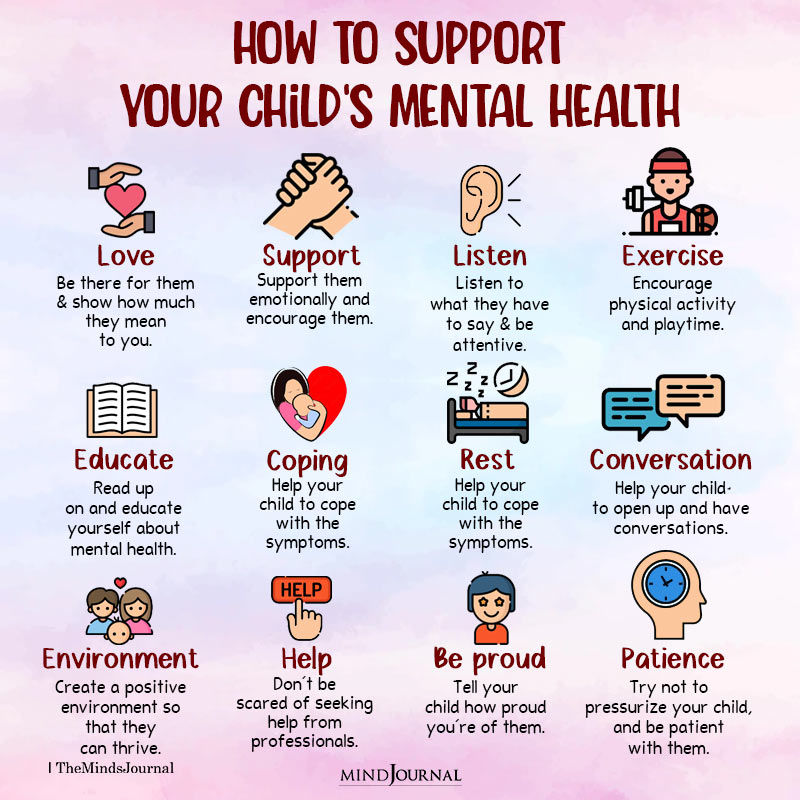Being an emotionally intelligent parent is one of the most powerful and beautiful things you can do for your children. Emotionally intelligent parenting is crucial for raising an emotionally and mentally healthy child. Let’s explore the things emotionally intelligent parents do, and the habits of emotionally intelligent parents.
KEY POINTS
- An emotionally intelligent parent empathizes instead of enables, listens instead of lectures, and looks inward to find accountability.
- A parent who corrects a child’s behaviours instead of his or her feelings may help a child with emotional regulation.
- A parent who occasionally self-reflects and introspects to ensure he or she is doing the right thing may be a parent who a child can trust.
Parenting is amazing, but it can also be confusing and frustrating. A parent who is too “soft” may raise an entitled child, but a parent who is overly harsh may inflict scars. Three essential concepts related to emotional intelligence may help a parent navigate the rough waters.
First, a parent who corrects a child’s behaviours instead of his or her feelings may be on the right track.
Second, a mom or dad who listens to understand in place of teaching and lecturing may be a person the child wants to talk to.
Third, an attachment figure who takes a moment to self-reflect and learn from a child may have an opportunity to grow and evolve as a person. Doing so models accountability and self-awareness for the child.
Often, a parent does not want a child to feel angry, disappointed, frustrated, or hurt. Yet, experiencing these emotions is inevitable in life. A child who can recognize, identify and articulate an uncomfortable emotion usually acts on it constructively.
Related: How to Raise Emotionally Intelligent Children: 3 Crucial Lessons
3 Things Emotionally Intelligent Parents Do
A parent who resonates with and respects what the child is feeling may help the child recognize the distressing emotion within himself or herself. This awareness is the foundation of emotional regulation.
Next, correcting bad behaviours helps a child realize that feelings are okay but acting out is not. A child who feels understood is often a child who is more inclined to adjust negative behaviour’s.
For example, Ben comes home enraged. He enters through the back door, slams it, and throws his backpack across the hall. Startled, his mom looks up from the kitchen. She immediately addresses Ben. She reflects and respects his anger but corrects his behavior.
“Ben, you are mad. I can see. I do not know why, but I want to. But you cannot throw your stuff. Please go pick it up.” Ben softens a touch and picks up his backpack and places it on the hook in the entry.
He walks over to his mom and tearfully explains that he attempted to stick up for a younger kid on the bus and the older kids turned on him and threw his paper out the window.
The mom continues to empathize, “That is awful. I would be mad too. You have every right.” Ben looks at her and says, “It was my homework for tomorrow.” The mom honors Ben’s feelings, “I bet you are worried and frustrated. You tried to do the right thing and now you may be in trouble for not having your homework. It stinks.”
Ben allows his mom to hug him and then says, “It’s okay, I’ll answer the questions on another sheet of paper. Mary (sister) has the questions on her worksheet.”
“Great idea, buddy. Do you need my help?” Ben asks for a snack and the mom sits next to him as he eats. Ben feels understood, supported, and close to his mom, who gets it.

Alternatively, the mom corrects Ben’s feelings instead of his behaviours. After he throws his backpack, she yells, “What is wrong with you!? Go to your room until you can calm down!” Now, Ben is ashamed of his anger instead of his behaviour.
He feels completely alone in his predicament and has indirectly learned that it is not safe to express what he is feeling to his mom, who does not get it. He is so mad that he breaks his video game and rips up the rest of his homework.
In the first example, the mom honours Ben’s emotions while upholding the rules. She conveys to Ben that his emotions are not bad or shameful, but his behaviours may be. Ben feels understood and is able to correct his missteps.
Related: How To Help Children Cope With Anger And Angry Feelings
Second, a mom or dad who listens to understand in place of teaching and lecturing usually preserves their closeness with a child. This is critical because the parent avoids immediately imposing his or her agenda on the child and instead keeps the discussion focused on the feeling that the child needs help with.
A child who has room to express his opinion in the parent-child dyad may be more likely to talk about a problem.
For example, early Monday morning, Billy tells his dad his stomach hurts. His father feels his forehead and asks Billy if he has vomited. Billy says, “No.” His dad crouches down and says, “Well, you don’t have a fever and you haven’t thrown up.”
Billy says, “I just hate Mondays, Dad. They are your long day at work and I don’t see you until 8 o’clock tonight.”
Billy’s dad empathizes, “I know, buddy. I have the same yucky feeling in my stomach. Mondays are hard, but we have to do it. School and work are important.” Billy feels understood and close to his dad, who gets it. He gives his dad a hug and runs to his room to get ready.
Alternatively, the dad immediately launches into a lecture about the importance of school. “Are you faking the flu so you can stay home? Do you know how important school is? Don’t you want to get into a good college? Don’t you want to get a good job? Don’t you want to be able to support a family?”
Billy’s dad drones on about the importance of education, and Billy leaves for school feeling worse than when he woke up.
Equally as counter-productive is a parent who bends the rules for a child because he or she feels sorry for the child. Enabling instead of empathizing may communicate to the child that he or she is a “victim” of the situation and thus entitled to opt out of responsibilities. Once this victim mentality is instilled, it may be difficult to rectify.
Third, a parent who occasionally self-reflects regarding a child’s feedback may gain insight and use it to become a better parent. This models introspection and self-awareness.
When these qualities occur in the context of the attachment relationship, it can be powerful for a child.
Experiencing a parental figure who looks at himself or herself to ensure he or she is doing the right thing may communicate to the child that accountability in a relationship is important and useful.

For example, a mom and her son are driving to an out-of-town soccer tournament. Halfway there, he asks, “Do you know why Molly (his sibling) went with her friend?” The mom replies, “Well, honey, it’s probably more fun to ride with a friend.” Her son shakes his head and says, “No, mom. She is scared when you drive. She thinks you drive too fast.”
The mom thinks for a minute. She reflects on her son’s comment. She does not want to believe it. Her heart breaks a little as she realizes her own daughter is scared of something she is doing.
She is also hurt that her daughter would choose another parent to ride with. She reviews her driving style and recognizes that her son is correct; she drives too fast.
She mentions to her son that she believes that he is right. He says to her, “Mom, why don’t you just say to yourself, ‘calm and slow’ when you drive?” The mom repeats the mantra and finds it helpful. She immediately feels better.
Related: 5 Common Parenting Errors and How To Be A Better Parent
That evening at the hotel, the mom apologizes to Molly and promises to drive more responsibly. She shares her new motto with Molly who appreciates it and supports her mom.
In this example, the mom gains self-awareness and models it for her children. Molly and Matt probably respect their mom for caring enough about the relationship to hold herself accountable and make a healthy change.
Empathy is a cornerstone of emotional intelligence and is an exceptionally important parenting tool. Honouring a child’s feelings while upholding expectations and limits may be the most effective way to remain close to a child.
In addition, a parent who listens without lecturing may be a parent the child wants to talk to. Lastly, a parent who is self-aware and introspective may be a parent who the child can trust.
Written By Erin Leonard Originally Appeared On Psychology Today









Leave a Reply
You must be logged in to post a comment.